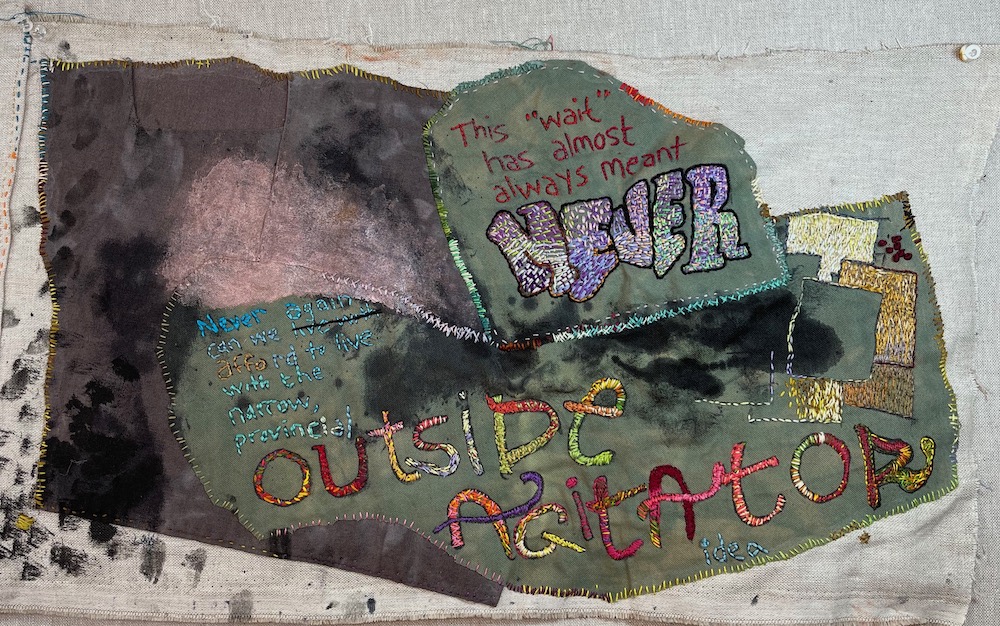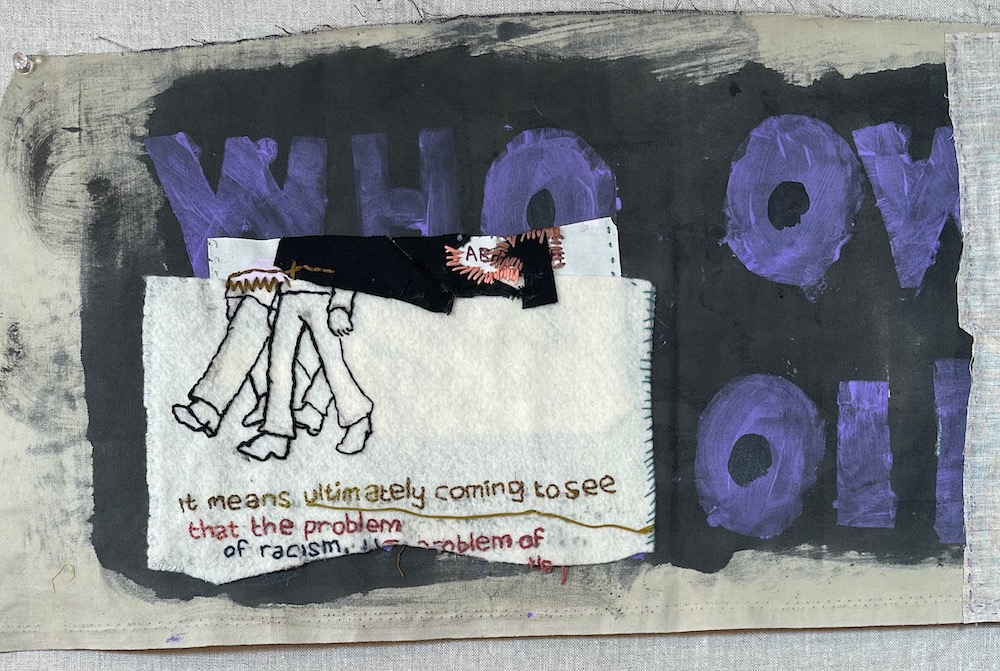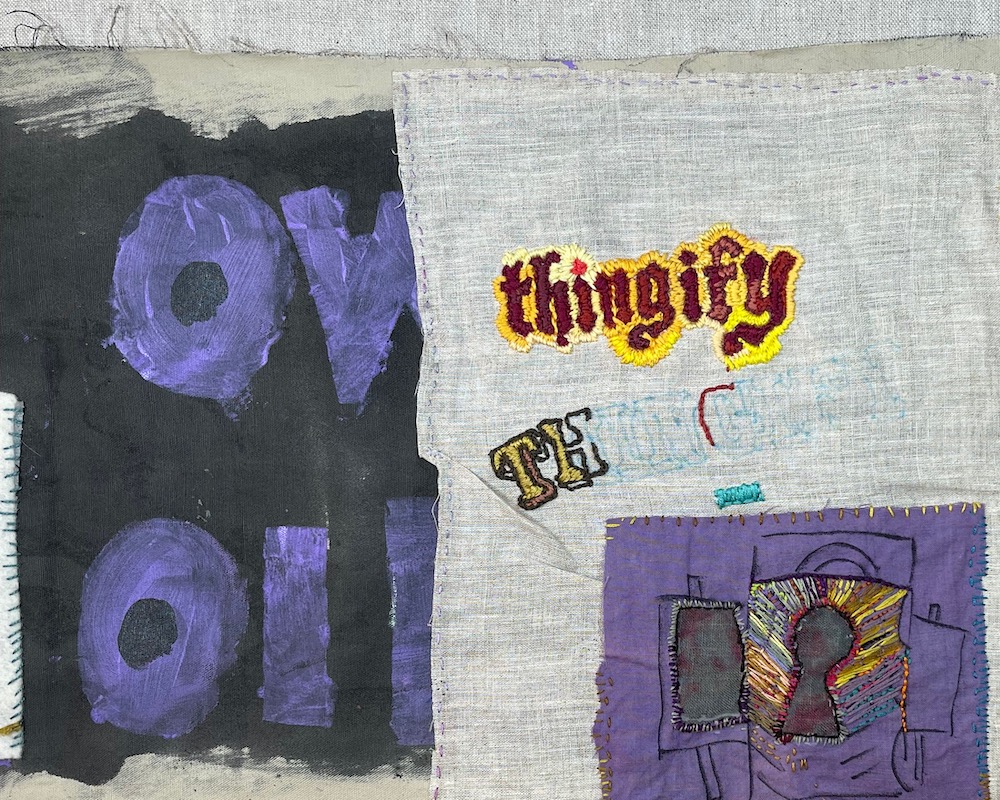Transformation not celebration
Martin Luther King Jr. – Vision & Legacy

This year, for the first time since the inauguration of Martin Luther King, Jr. Day in 1986, King’s family called on members of the public not to celebrate the holiday. Instead, over fifty years after King’s death, they are calling for protests to demand that President Biden and Congress pass federal voting rights legislation. “We will not accept empty promises in pursuit of my father’s dream for a more equal and just America,” Martin Luther King III wrote in a statement.
This follows a year in which the majority-conservative Supreme Court gutted the last remaining sections of the 1965 Voting Rights Act, after decades of attempts by the Right to curtail voting rights, along with other gains of the Civil Rights era.
Indeed, taking to the streets is a far more fitting way to honor King than trotting out the traditional elegies by conservatives and moderates alike. More often than not, official praise for King—only referenced once a year on his birthday or while berating young Black people whenever and however they choose to protest present-day injustices—primarily serves to sanitize, defang, and burry King’s actual legacy by stripping him of his more radical politics.
Nevertheless, there is probably greater awareness of King’s radicalism today than at any time since his death. This is thanks in no small part to the movement against anti-Black racism that has developed over the last decade. Today, it is more widely known beyond the far left that King was fiercely critical of capitalism; that he lambasted not only overt white supremacists but the “white moderate” who “prefers a negative peace which is the absence of tension to a positive peace which is the presence of justice;” that he was declared an enemy by the U.S. government for his willingness to speak out against the Vietnam War; that he came to believe challenging racial injustice (and not only its de jure, Jim Crow variant) would require a Poor People’s Campaign to challenge economic injustice at its root; and that he was killed while supporting striking sanitation workers in Memphis. King’s exhortation that we must oppose the “triplets of racism, militarism, and materialism” are as relevant to our struggles for justice today as ever.
Equally important is that King was not an isolated, saintlike figure, but a person whose own political evolution occurred in the context of wider struggles that brought masses of ordinary people into the fight for racial justice. King’s own recognition of this fact is part of what made him such a brilliant orator and articulator of the demands of the movement, and why he was seen as so dangerous in his own time. Honoring the real, radical King starts with exploring the full breadth and trajectory of his ideas toward an embrace of socialist and social democratic ideas, which he insisted would require a radical transformation of society. In that spirit, we share King in his own words.
–Haley Pessin, for the Tempest Editorial Board
Many thanks to Annie Zirin for granting use of her piece in honor of Dr. King’s place in the struggle, “Outside Agitator”. Please find her on Instagram @anniezirin.

“Letter from a Birmingham Jail”, August 1963:
“For years now, I have heard the word ‘Wait!’ It rings in the ear of every Negro with piercing familiarity. This ‘Wait’ has almost always meant ‘Never.’ We must come to see, with one of our distinguished jurists, that ‘justice too long delayed is justice denied.”
Speech to his staff in 1966:
“You can’t talk about solving the economic problem of the Negro without talking about billions of dollars. You can’t talk about ending the slums without first saying profit must be taken out of slums. You’re really tampering and getting on dangerous ground because you are messing with folk then. You are messing with captains of industry. Now this means that we are treading in difficult water because it really means that we are saying that something is wrong with capitalism.”

Report to Southern Christian Leadership Conference in May 1967:
“We must recognize that we can’t solve our problem now until there is a radical redistribution of economic and political power…. This means a revolution of values and other things. We must see now that the evils of racism, economic exploitation, and militarism are all tied together… you can’t really get rid of one without getting rid of the others… the whole structure of American life must be changed. America is a hypocritical nation and [we] must put [our] own house in order.“
Speech to SCL Conference, “Where Do We Go From Here?”, Atlanta, Georgia August 16, 1967:
“[W]e must honestly face the fact that the movement must address itself to the question of restructuring the whole of American society. There are forty million poor people here, and one day we must ask the question, “Why are there forty million poor people in America?” And when you begin to ask that question, you are raising a question about the economic system, about a broader distribution of wealth. When you ask that question, you begin to question the capitalistic economy. And I’m simply saying that more and more, we’ve got to begin to ask questions about the whole society. We are called upon to help the discouraged beggars in life’s marketplace. But one day we must come to see that an edifice which produces beggars needs restructuring. It means that questions must be raised. And you see, my friends, when you deal with this you begin to ask the question, “Who owns the oil?” You begin to ask the question, “Who owns the iron ore?” You begin to ask the question, “Why is it that people have to pay water bills in a world that’s two-thirds water?” These are words that must be said.”

“Now, when I say questioning the whole society, it means ultimately coming to see that the problem of racism, the problem of economic exploitation, and the problem of war are all tied together. These are the triple evils that are interrelated.”
“[I]n other words, Your whole structure must be changed. A nation that will keep people in slavery for 244 years will thingify them—make them things. Therefore they will exploit them, and poor people generally, economically. And a nation that will exploit economically will have foreign investments and everything else, and will have to use its military to protect them. All of these problems are tied together.”
Speech at the Bishop Charles Mason Temple of the Church of God in Christ in support of the Memphis sanitation workers’ strike, “All Labor has Dignity”, March 18, 1968:
“If America does not use her vast resources of wealth to end poverty and make it possible for all of God’s children to have the basic necessities of life, she too will go to hell.”

Featured Image Credit: Martin Luther King Jr., January 1, 1964. Photo by Walter Albertin, NY-World Telegram & Sun, Library of Congress. Image modified by Tempest.
We want to hear what you think. Contact us at editors@tempestmag.org. And if you've enjoyed what you've read, please consider donating to support our work:
Donate